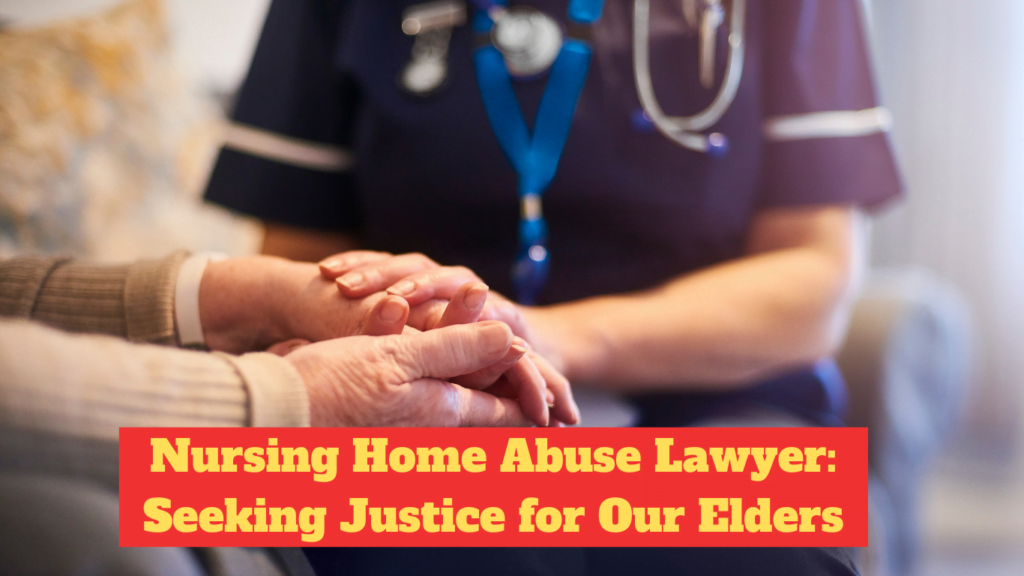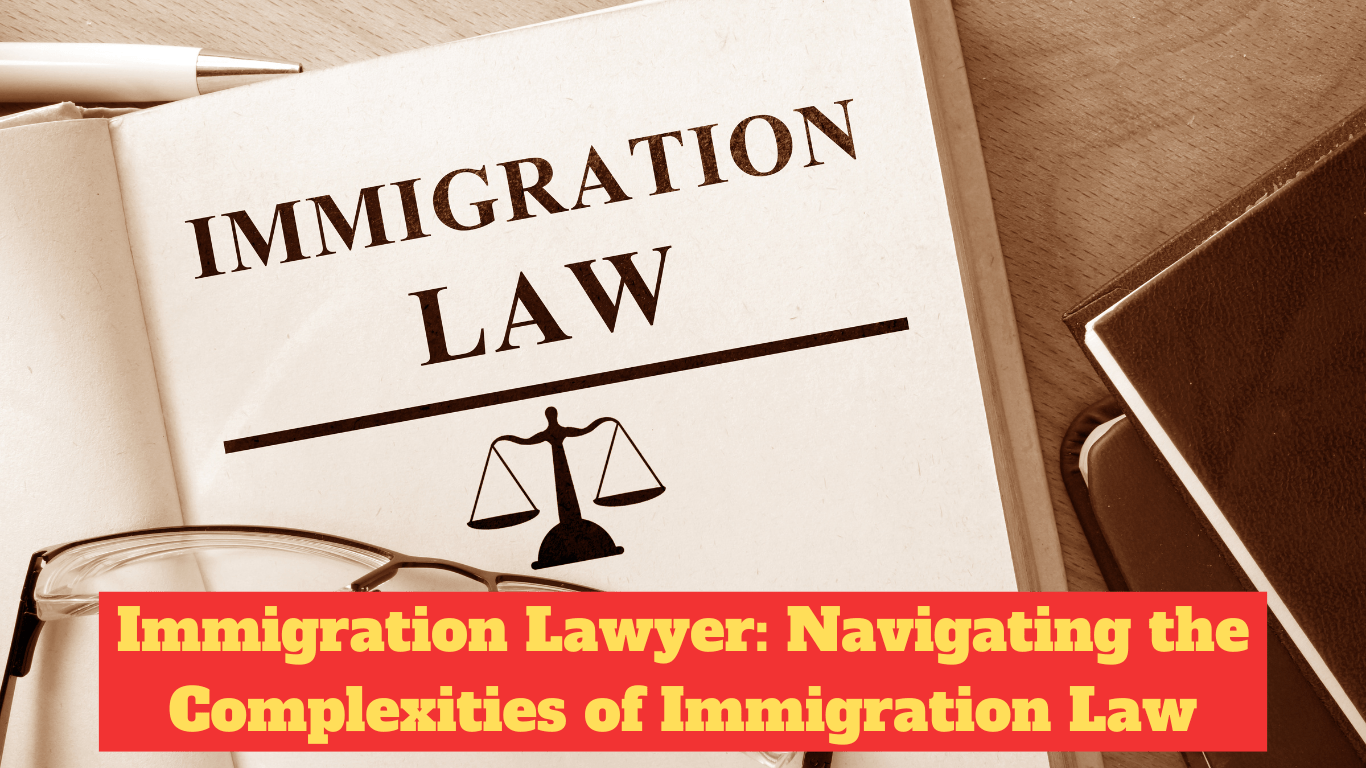Introduction
Nursing Home Abuse Lawyer: In today’s society, where the elderly population is growing rapidly, the need for nursing homes and long-term care facilities has also increased. These institutions are meant to provide a safe and nurturing environment for our aging loved ones. However, there are instances when the trust placed in these facilities is broken, leading to nursing home abuse and neglect. This is where a nursing home abuse lawyer plays a crucial role. In this article, we will explore the importance of nursing home abuse lawyers, the signs of abuse, how to take legal action, and the steps involved in seeking justice for our elders.
Table of Contents
Understanding Nursing Home Abuse
Definition of Nursing Home Abuse
Nursing home abuse refers to the intentional harm inflicted upon elderly residents of nursing homes and long-term care facilities. It encompasses physical, emotional, sexual, and financial abuse, as well as neglect. The abuse can be perpetrated by staff members, fellow residents, or even visitors. Check 10 Top Law Firms in USA.
Types of Abuse
- Physical Abuse: This involves the use of force that results in physical harm, such as hitting, pushing, or restraining residents.
- Emotional Abuse: Emotional abuse refers to actions that inflict psychological pain, including intimidation, humiliation, and verbal threats.
- Sexual Abuse: Any non-consensual sexual contact, sexual harassment, or exploitation of a nursing home resident constitutes sexual abuse.
- Financial Abuse: Financial abuse involves the unauthorized use or manipulation of an elderly person’s finances or assets, including theft, coercion, or fraud.
Factors Contributing to Abuse
Several factors contribute to nursing home abuse, including understaffing, inadequate training, lack of supervision, high turnover rates, and poor management. These factors create an environment where vulnerable residents can become victims of abuse and neglect.
Recognizing the Signs of Nursing Home Abuse
It is crucial to be vigilant and recognize the signs of nursing home abuse to protect our loved ones. Here are some common indicators:
Physical Signs
- Unexplained injuries such as bruises, fractures, or burns
- Malnutrition or sudden weight loss
- Bedsores or pressure ulcers
- Poor personal hygiene and unsanitary living conditions
Emotional and Behavioral Signs
- Withdrawal from social activities
- Unusual behavior such as rocking, mumbling, or thumb-sucking
- Depression, anxiety, or fearfulness
- Changes in sleep patterns
Financial Signs
- Unexplained or sudden changes in the resident’s financial situation
- Missing personal belongings or unauthorized use of credit cards
- Changes in wills, power of attorney, or other legal documents
The Role of a Nursing Home Abuse Lawyer
When nursing home abuse occurs, it is essential to seek legal representation from a specialized nursing home abuse lawyer. Here’s how they can assist you:
Legal Expertise
Nursing home abuse lawyers have in-depth knowledge of elder law and personal injury law. They understand the complex legal framework surrounding nursing home abuse cases and can guide you through the process.
Investigating the Case
A nursing home abuse lawyer will thoroughly investigate the allegations, collect evidence, interview witnesses, review medical records, and consult with experts if needed. They will work to uncover the truth and build a strong case.
Building a Strong Legal Strategy
Based on the evidence gathered, the lawyer will develop a legal strategy tailored to your specific situation. This may involve filing a lawsuit, negotiating a settlement, or taking the case to trial. Their goal is to seek justice for your loved one and hold the responsible parties accountable.
Taking Legal Action
If you suspect nursing home abuse, it is crucial to take immediate action. Here are the steps involved in pursuing legal recourse:
Gathering Evidence
Document any signs of abuse or neglect, take photographs if appropriate, and gather medical records and witness statements. This evidence will be crucial in supporting your case.
Filing a Lawsuit
Your nursing home abuse lawyer will assist you in filing a lawsuit against the responsible parties, such as the nursing home facility, staff members, or administrators. They will ensure all necessary legal documents are prepared and filed correctly.
Negotiating a Settlement
In many cases, the opposing party may choose to settle the lawsuit outside of court. Your lawyer will negotiate on your behalf to secure a fair settlement that compensates your loved one for their injuries and suffering.
Going to Trial
If a settlement cannot be reached, your lawyer will represent you in court. They will present the evidence, call witnesses, and argue your case before a judge and jury. They will fight tirelessly to obtain a favorable verdict and the compensation your loved one deserves.
Seeking Justice for Our Elders
Seeking justice for our elders involves holding the nursing home facility accountable for their actions. Here are some avenues to pursue:
Compensatory Damages
Compensatory damages aim to reimburse the victim for the harm suffered. This includes medical expenses, pain and suffering, emotional distress, and loss of quality of life.
Punitive Damages
In cases of extreme negligence or intentional harm, punitive damages may be awarded. These damages serve as a punishment for the wrongdoer and act as a deterrent to prevent future abuse.
Holding the Facility Accountable
By pursuing legal action, you are not only seeking justice for your loved one but also holding the nursing home facility accountable. This can lead to improvements in their practices, ensuring the safety and well-being of future residents.
Frequently Asked Questions (FAQs)
FAQ 1: How can I identify if my loved one is being abused in a nursing home?
Look for physical signs of abuse, changes in behavior or mood, unexplained financial transactions, and unsanitary living conditions. Trust your instincts and consult with a nursing home abuse lawyer if you suspect abuse.
FAQ 2: What steps should I take if I suspect nursing home abuse?
Document any signs of abuse, gather evidence, and report your concerns to the appropriate authorities. Contact a nursing home abuse lawyer for legal guidance and support.
FAQ 3: How long does it take to resolve a nursing home abuse case?
The duration of a nursing home abuse case varies depending on various factors, such as the complexity of the case, court procedures, and the willingness of the opposing party to settle. Your lawyer can provide a more accurate estimate based on the specifics of your case.
FAQ 4: Can I sue a nursing home for neglect?
Yes, if you have evidence of neglect or abuse, you can file a lawsuit against the nursing home facility, staff members, or administrators. Consult with a nursing home abuse lawyer to discuss your legal options.
FAQ 5: What should I do if the nursing home denies the abuse allegations?
If the nursing home denies the abuse allegations, your lawyer will help you gather additional evidence, interview witnesses, and build a strong case to prove the abuse occurred. They will advocate for your loved one’s rights and fight for justice.
Conclusion
Nursing home abuse is a grave concern that demands our attention. By recognizing the signs of abuse, seeking legal assistance, and pursuing justice, we can protect our elderly loved ones and ensure they receive the care and respect they deserve. If you suspect nursing home abuse, do not hesitate to take action. Reach out to a nursing home abuse lawyer who will champion your cause and fight for justice. Together, we can make a difference. Check just beauty tools to see the latest beauty tools updates.





